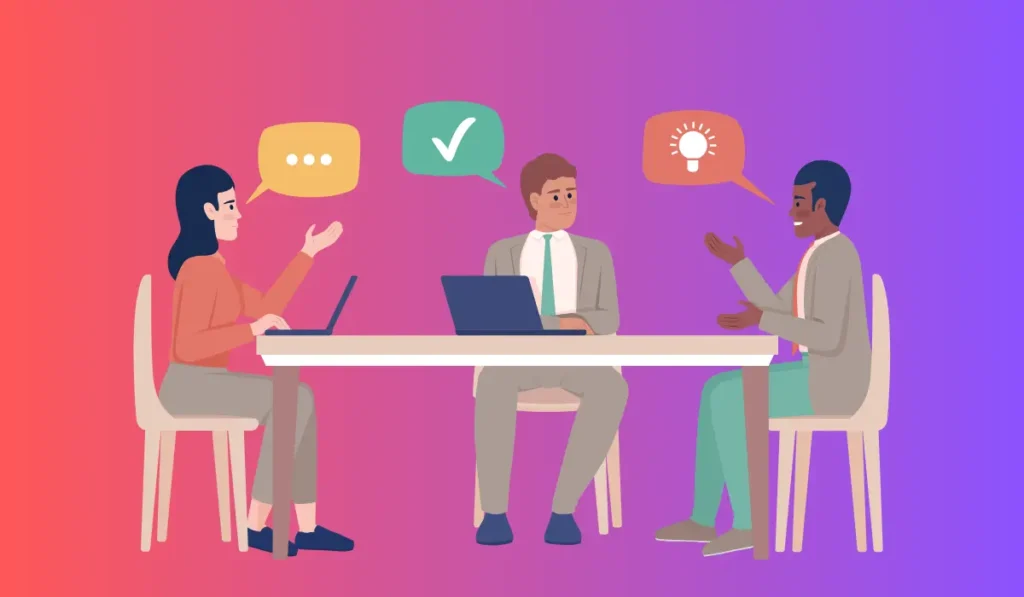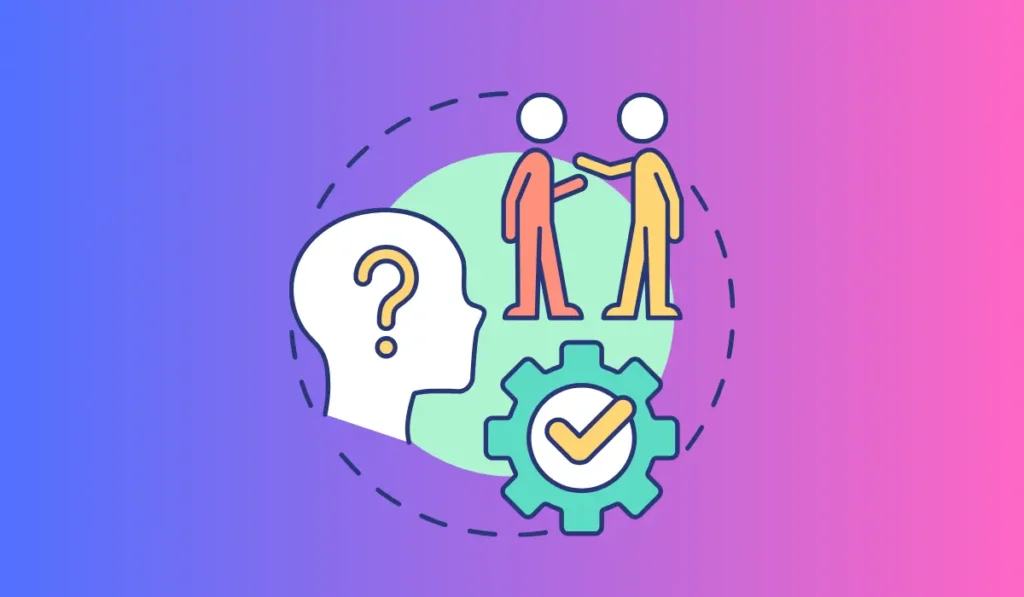The panel discussion method is a seminar format that involves a group of experts discussing a particular topic in front of an audience. This method is beneficial in creating an interactive environment and providing different perspectives on a topic.
The panelists, who are usually experts in their field, engage in a conversation, share their views, and answer questions posed by the moderator and the audience.
The panel discussion method is highly beneficial in promoting learning, allowing participants to learn a great deal about a topic in a short time.

Understanding The Panel Discussion Method
Panel discussions are a popular method of communication, where a group of subject matter experts discuss and share their insights on a particular topic. It involves a moderator who leads the session, asking questions and facilitating conversation among the panelists.
Panel Discussion Method Is Different
Here are some of the key differences between panel discussions and other discussion methods:
- In a panel discussion, the audience is passive and observes the conversation rather than actively participating.
- Panel discussions involve a moderator, whereas other discussion methods may not.
- The focus of panel discussions is on the exchange of ideas and opinions among the panelists, whereas other discussion methods may focus more on problem-solving or decision-making.
Preparing For A Panel Discussion
Panel discussions are an effective way of sharing different perspectives on a topic from different panelists who are experts in their respective fields. A well-prepared panel discussion can generate new ideas and engage the audience.
Preparing for a panel discussion should start with outlining the key factors such as:
Choosing The Right Panelists
The success of the panel discussion depends heavily on the selection of the panelists. The following factors should be taken into consideration:
- Expertise: The panelists should have the relevant knowledge and qualifications on the topic of discussion.
- Diversity: Having a panel that includes diverse experiences, perspectives and backgrounds will provide a well-rounded perspective.
- Relevance: Panelists should be relevant and current in their field of expertise.
- Availability: Make sure the panelists have ample time to prepare and can attend the scheduled event.
Setting Clear Objectives And Desired Outcomes
Clear objectives and outcomes help to steer the discussion in the right direction. These factors should be considered:
- Clear objectives: Clearly define the objectives and goals of the panel discussion to ensure the conversation is focused and on track.
- Desired outcomes: Describe the outcomes you aim to achieve from the panel discussion.
Creating An Agenda And Format For The Discussion
The agenda and format of the panel discussion are essential components of a successful event. Consider the below:
- Time management: Allocate enough time for each panelist and moderator to speak, and determine the time for questions and the overall duration of the event.
- Format of the discussion: Choose the best format- Q&A, debates or a free-form conversation.
- Define roles: Clearly define the role of each panelist and ensure that the moderator understands the responsibilities.
Tips For Moderating A Panel Discussion
The moderator plays a crucial role in the success of the panel discussion. The following tips will help the moderator ensure a productive and engaging conversation:
- Prepare your questions: Have a list of questions to keep the panel discussion on topic and steer it toward your objectives.
- Be engaged: Engage with the panelists by listening actively, asking follow-up questions and guiding the discussion.
- Encourage audience participation: Integrate audience questions and participation to keep the conversation engaging and to ensure inclusivity.
- Stay on time: Keep the discussion on schedule by managing time effectively and giving each panelist a turn to speak.
Preparing for a panel discussion is crucial to ensure that the conversation is productive, engaging and inclusive.
By selecting the right panelists, defining clear objectives and outcomes, creating an effective agenda and format, and applying moderating best practices, you will set the panel up for success.

Engaging The Audience
Panel discussions are an excellent platform to engage and interact with the audience. A successful panel discussion connects with the audience and paves the way for a meaningful dialogue. Here are a few useful tips for engaging the audience in a panel discussion:
Creating Opportunities For Audience Participation
• start by creating a comfortable and inviting atmosphere for the audience to express their opinions.
• encourage open discussions and ask for the audience’s input through live polling or offline surveys to ensure everyone has a chance to participate, even without internet access.
• provide the audience with clear guidelines on how they can participate in the discussion.
• place audience members in groups and encourage discussion amongst themselves.
Frequently Asked Questions
What Is A Panel Discussion Method?
A panel discussion is a meeting where a group of experts come together to answer questions on a specific topic. The purpose is to gather insights and perspectives from a diverse range of opinions.
How Does A Panel Discussion Work?
In a panel discussion, one moderators ask questions to a panel of two or more experts. The experts exchange ideas, respond to each other’s opinions, and provide insights into the topic under discussion.
Why Should You Use A Panel Discussion Method?
Panel discussion can provide multiple perspectives and opinions on a shared topic. Through open and honest dialogue, critical thinking can be stimulated, and meaningful learning can occur, making them ideal for large events, conferences, or corporate training sessions.
What Are The Benefits Of Panel Discussion?
Panel discussions bring different views and experiences together, leading to a broad range of perspectives on the topic at hand. They are engaging and participatory and help humanize experts, and promote a sense of community among the audience.
Who Should Attend Panel Discussions?
Panel discussions are ideal for anyone who is interested in a particular area or topic and wants to hear different viewpoints on the same subject. It’s especially beneficial for professionals, leaders, and students about to enter an industry.
Conclusion
After analyzing the pros and cons, the panel discussion method can be concluded to be an effective way to engage the audience on a specific topic. It is a great way to interact with experts and share knowledge with others. It offers an opportunity to present different perspectives, share ideas, and clarify doubts. Panel discussions also contribute to building relationships with the audience and creating a community of like-minded individuals. However, to make it successful, the organizer must ensure that the panelists are knowledgeable and passionate about the topic, the moderator is well-prepared, and the audience is engaged throughout the discussion.


